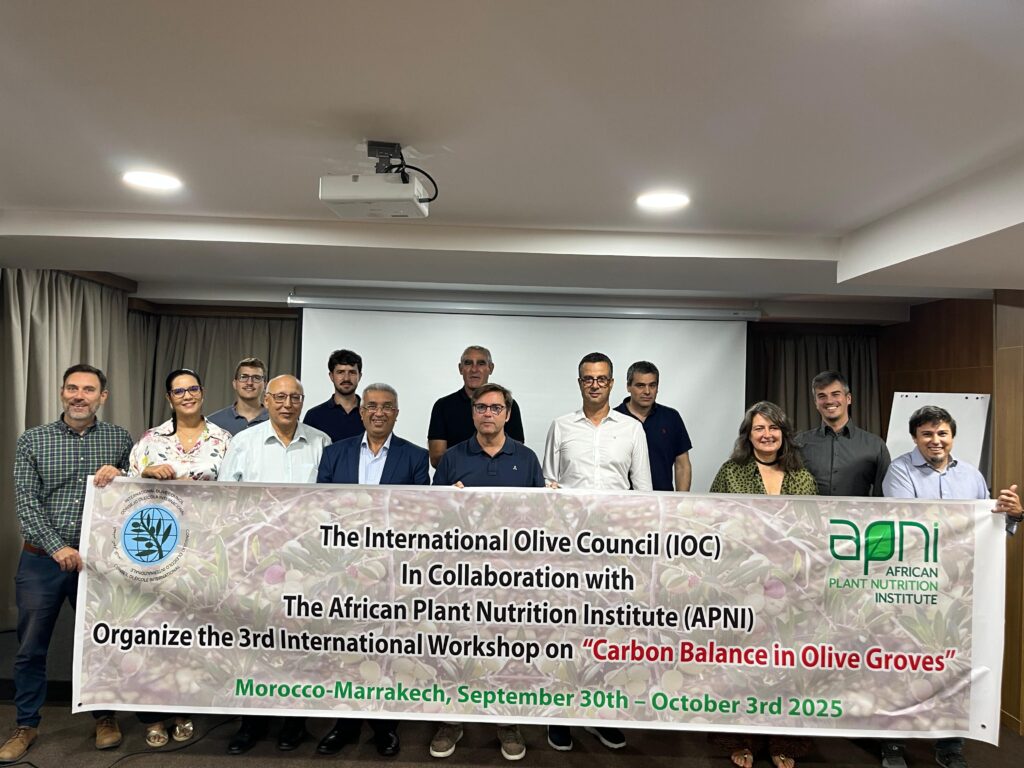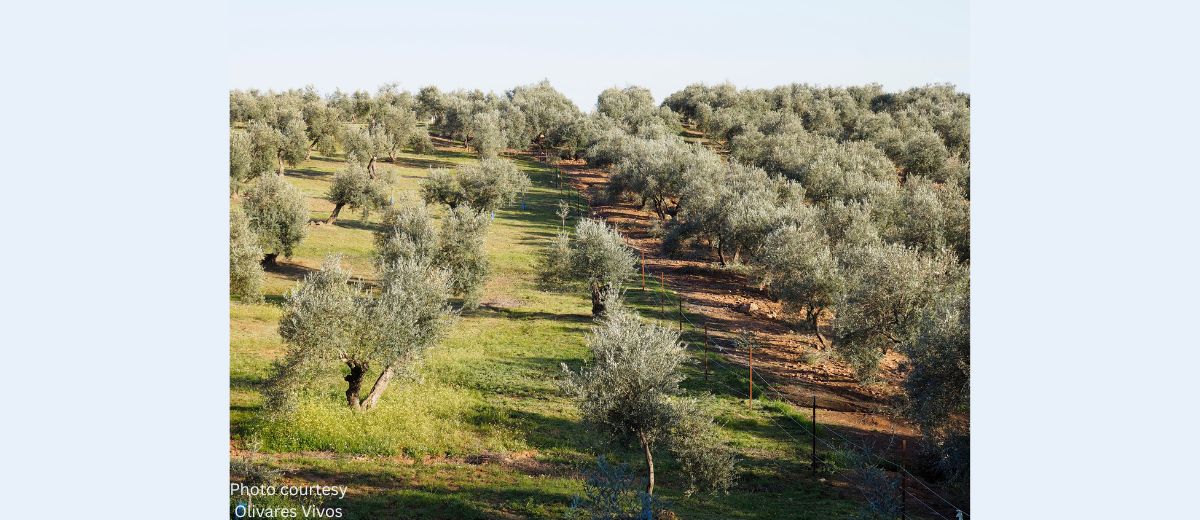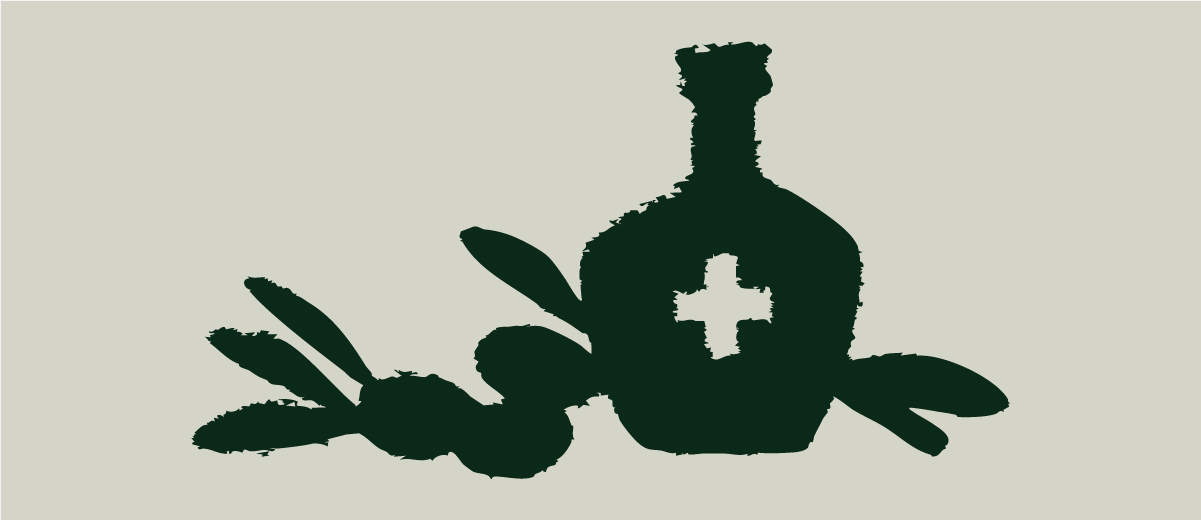The International Olive Council (IOC) held its third working session on the Carbon Balance Project in Marrakech, Morocco, on 30 September and 3 October, marking a significant step toward enabling olive growers to benefit from voluntary carbon markets.
Organised in cooperation with Morocco’s National Institute of Agricultural Research (INRA) and the African Plant Nutrition Institute (APNI), the meeting focused on finalising a robust methodology to assess and certify the carbon balance of olive groves. This methodology will form the basis for voluntary carbon credit certification for olive farmers worldwide, enhancing the sector’s role in global climate action.
According to the IOC’s 2017 Global Olive Oil Carbon Balance study, the world’s 10.5 million hectares of olive groves could capture up to 47 million tonnes of CO₂ per year—an average of 4.5 tonnes per hectare annually. With proper tools and certification mechanisms, these carbon sinks could become a new source of income for olive growers while contributing to climate mitigation.
Opening remarks were delivered by Lhassane Sikaoui, Head of the IOC’s Olive Growing, Olive Oil Technology and Environment Unit, and Hakim Boulal from APNI. The session brought together IOC experts and technical leaders from across the olive world, alongside representatives from the Spanish Association for Standardisation and Certification (UNE), and scientists from Morocco, Tunisia, Spain, Greece, Argentina and beyond.
 Participants included:
Participants included:
- Juan Antonio Polo Palomino (IOC)
- Catarina Bairrão (IOC)
- Álvaro Martínez (AENOR, Spain)
- Iván Alejandro González (AENOR, Spain)
- Sara Oulbi (INRA, Morocco)
- Kamel Gargouri (Institut de l’Olivier, Tunisia)
- José Luis Gabriel (INIA, Spain)
- Georgios Koubouris (ELGO-DEMETRA, Greece)
- Javier Martín Echazarreta (INTI, Argentina)
- Roberto Garcia (University of Jaén, Spain)
- Ricardo Beck, external consultant
With this meeting, the IOC takes a further step to providing the sector with science-based tools to assess the olive orchards’ carbon balance and access carbon credit mechanisms—positioning olive cultivation not only as a source of nutrition and cultural heritage but also as a driver of environmental sustainability.
For more information on the IOC’s Carbon Balance Project, visit our website.









